The Storytelling Layers of Literary Merit
What makes certain works of literature more than just a product of their time? What is it about such works that current and future artists can derive from them to tighten their grasp of the literary craft and the humanity they convey?
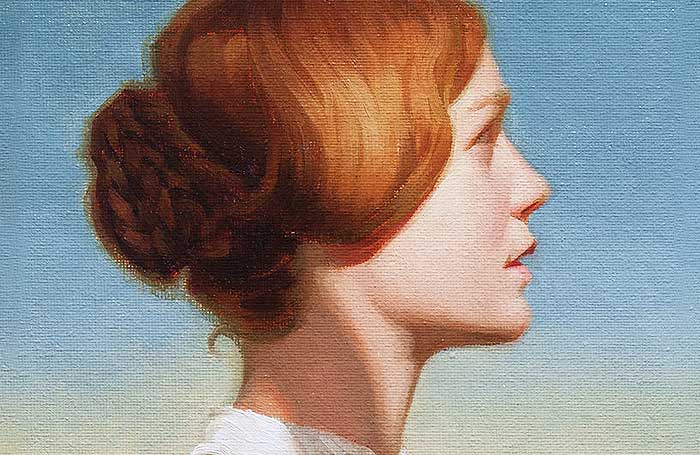
Given the medium’s age, it’s no secret that literature plays host to sundry appraisals of works across the eras. Chief examples include Harold Bloom’s The Western Canon (1994) and Encyclopædia Britannica’s Great Books of the Western World (1952).
Such endeavors are meant to catalog specific literary breakthroughs that highlight a particular quality. It’s one that sparks as much discussion around it as the breakthroughs themselves do. Not to mention as many qualifications for said quality, including “providing insight that creates a stronger understanding of the world and of the human condition.” 1
That quality is literary merit.
Due to the term’s use for works like those of Shakespeare and Twain, one may believe that literary merit separates literary fiction from genre fiction. In other words, works that put emphasis on character exploration from works that prioritize plot and action.
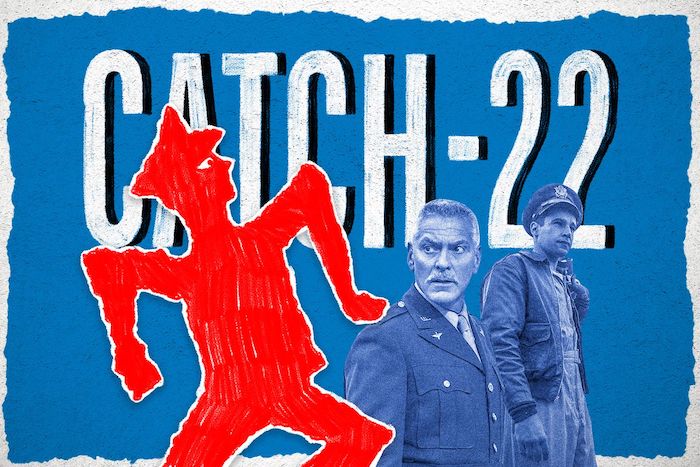
Yet with passing generations, literary tastes and standards for how a book should read change. What that means is that a book’s quality is hardly set in stone, thus opening the door to reassessments. With the power of hindsight, they can reveal how far a book stretches its roots of influence across other literary works beyond said book’s original release window.
Literary merit, then, isn’t necessarily an indicator of a book’s place in either literary or genre fiction. It instead comes from dissecting a book, irrespective of its genre, that reveals how deep the author went into studying humanity. The author uses their creativity to weave a tale with poignant observations on how folks form worldviews and societies that, in turn, mold people.
The writer can accomplish this feat via three qualities shared among works of literary merit:
– A Personal Worldview and Voice, which involves the author’s embedding their innermost selves into their work’s throughline and prose style — inviting readers into the author’s unique psyche and thus promoting empathy via the reading experience
– A Deconstruction of Society, which has the author dissect and critique real-life civilization, giving them a chance to show how human values can contrast with and challenge societal mores in order to promote a message of change in the social fabric
– Personal vs. Interpersonal, which concerns change — both inner and outer — through the characters’ interactions with their environment and vice-versa, giving readers a chance to understand how they can shape themselves and the outside world
A book with literary merit doesn’t need to “mimic real life, but it [can use] its magic mirror to reflect on the world around us” 2 as well as on those populating said world.
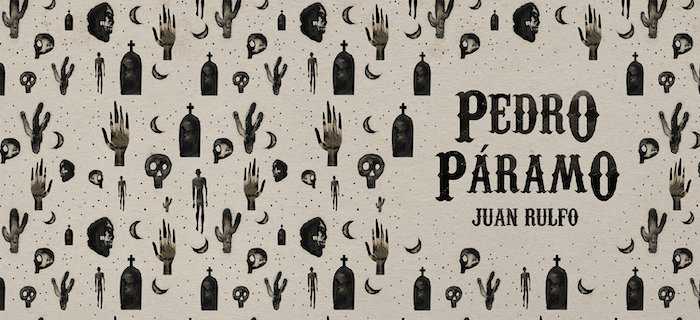
A Personal Worldview and Voice
The first indicator of a book with literary merit revolves around the author’s unique worldview. Said worldview can be embedded into the thematic fabric of the story and even via the narrator’s voice. This can further contrast the mindset and temperament of the point of view (POV) with the wider world.
From isolated island life in Circe (2018) to obsessive whaling in Moby-Dick (1851), the idea of seeing the world with unvarnished eyes and creatively dissecting it is a trait shared among works of literary merit.
This can be conducive to generating character development, what with the character’s unorthodox mien clashing with a world intolerant of uncertainty. It can also present a unique perspective on life that can open readers to new outlooks and make them think about the world’s quirks.
One book that exemplarily achieves the above is Russell Hoban’s Riddley Walker (1980). It does so right from the get-go, with the audience being treated to prose that reads like a reconstructed rendition of the English language.
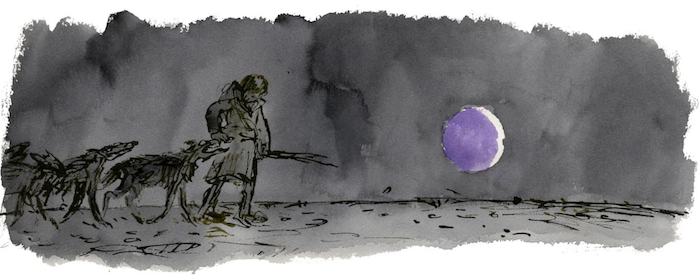
Said prose is meant to simulate the speech and thought patterns of the titular character in a post-apocalyptic world. But it’s not just a stylistic tool for having the reader’s view of post-apocalyptic Kent filtered through its inhabitants’ senses.
Hoban leverages the prose and first-person POV to narrow the gap between the main character and reader. “The language [draws] us into an utterly changed world and gives us some idea of its challenges: The reader’s grappling with the language mirrors Riddley’s struggle to survive life.” 3
The reader thus witnesses alongside Walker the mysteries of the world and the creation myths that highlight the folly of folks in their annihilation of Earth. It’s done in a way that has the reader empathize with Walker’s struggles and observations about neo-tribal humanity.
Without the POV’s unique voice and take on human nature, Riddley Walker still makes for a solid work of post-apocalyptic fiction. But Walker’s mien and adventurousness allow Hoban to broaden his narrative focus beyond mere daily survival and resource wars.
Ergo, the protagonist and reader intimately explore together the relationship between neo-tribal humans and a past they treat as forbidden knowledge. It compels the audience to make assessments about how real-life society treats its history. Riddley’s world may not be like ours, “but his flesh and mind are. And one of the great tricks of this novel is that by the end, the things we share in common with Riddley seem as fascinating as those that make him strange.” 4

Worldview and/or voice are stylistic devices the author can use to explore topics that generally yield literary merit. This includes analyzing humanity in general and portraying points of view that fall outside the mainstream but have something pertinent to say about human nature.
The author thus ventures into avenues that offer commentary on how different people see and comport themselves differently in an overwhelming world. It highlights the fact that being human is an art in itself.
Other Examples:
- The Curious Incident of the Dog in the Night-Time (2003) for embedding the POV’s behavioral condition into the prose
- The Sellout (2015) for the protagonist’s wry stream-of-consciousness regarding race in America
- Jane Eyre (1847) for showcasing proto-feminist traits and the heroine’s individualistic character in Victorian England
- The Portrait of a Lady (1881) for its innermost rendition of female self-actualization and adventuring in a patriarchal society
A Deconstruction of Society
Just as the author can use characterization to bolster their work’s thematic potency, so too can they look at circumstances and surroundings that challenge their characters. This is achieved to spotlight the societal underpinnings that folks take for granted and subconsciously embrace.
Whether satirical or solemn, an author’s creative dissection of society can reveal as much about societal mores as it does about the author’s worldview. Examples include the Jewish Alaskan settlement in The Yiddish Policemen’s Union (2007), and the Pacific desert island in Lord of the Flies (1954).
By doing so, the author can invite readers to assume the writer’s vantage point and look at things from an unvarnished and maverick perspective. It compels readers to form their own observations on the inner workings of human civilization. Literary merit can thus stem from a work’s ability to inspire other artists to portray novel analyses of society in fiction.
Enter China Mieville’s The City & The City (2009). This dystopian book takes the uneasy coexistence and separation of the other — as seen in Cold War-era Berlin and Israel-Palestine — and weaves it into a New Weird narrative. Said narrative turns the human tendency to overlook that which one can’t or is unwilling to understand into a cognitive rule that rewards ignorance of the Other.
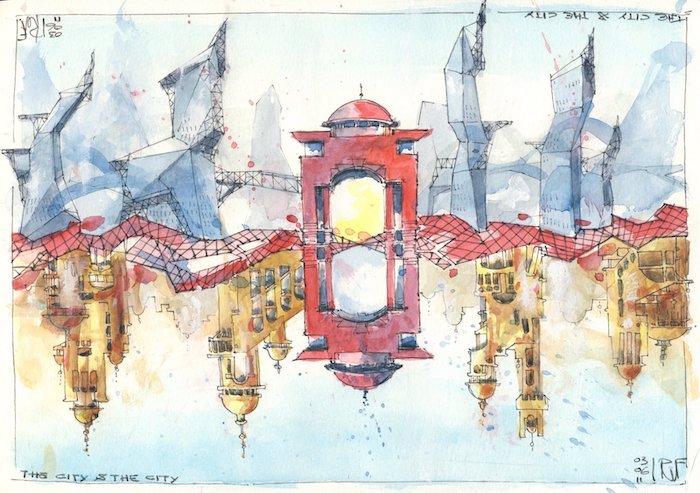
Through the mental gymnastics that folks leverage to deny the Other’s existence, Mieville uses the supernatural to amplify the absurdity of fencing oneself in. This can be seen in the recklessness of the nationalist and unionist groups in the rival cities of Besźel and Ul Qoma. The throughline’s also conveyed via the taboo around illegally crossing from one city to another, lest one summons the wrath of the secret power known as “Breach.”
By underlining said absurdity, the book exposes real-life folks’ unwillingness to learn things that challenge their view of how the world works and ought to work.
It’s a testament to Mieville’s cosmopolitan curiosity that the novel retains impartiality in its dissection and critique of the urban fabrics uneasily linking Besźel and Ul Qoma. It allows readers to be less willing to take sides and more willing to take a stand instead against institutionalized tribalism.
By making readers think that way, the book becomes more than just a supernatural thriller. It also stands as a thrilling form of edification that gives the prose thematic palpability via the timeless throughline of human bonding vs. separation. The novel offers “not just a clever way of resolving a mystery, of identifying a culprit and closing a case, but [also] a thought-provoking challenge to a whole set of social norms and conventions.” 5
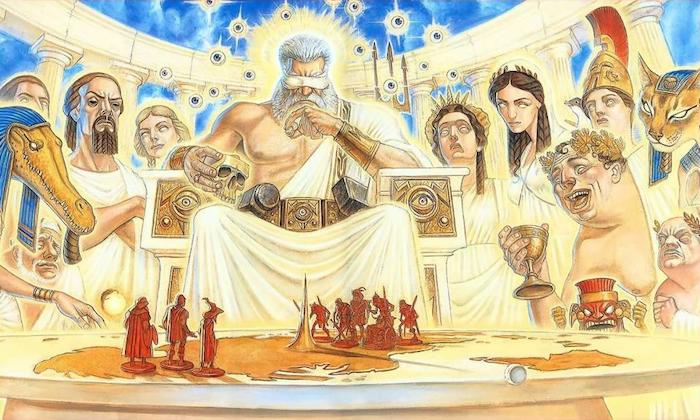
Society can be deemed as a body of sorts — one just as prone to ailments and quirks as a fleshy one. The author can thus take on the role of a surgeon using the page as their operating table and pen as their dissecting tool. They do so to take a peek at what makes society tick and determine what they wish to heal via solemnity, satire, or a blend of the two in their writing.
The author can potentially stand out in the literary field with a fresh perspective on civilization that can have readers reassess what they take for granted in life. By encouraging such thinking, a book can resultingly take on more merit as a piece of art that educates on top of entertaining.
Other Examples:
- Small Gods (1992) for spotlighting the difference between true faith and blind zealotry in religious matters
- The Master & Margarita (1967) for exposing the absurdity and cruelty of Soviet policies via supernatural fandango
- Les Misérables (1862) for demonstrating the evolution and blemishes of 19th-century France
- The Island of Doctor Moreau (1896) for exposing the lack of restraints in humankind’s dealings with nature
Personal vs. Interpersonal
So what does a look at the intimate and societal in fiction achieve, particularly when character and world clash with one another? Change, for a start. Not just in the main players and the playground they’re in, but also in how one interprets relations between the personal and interpersonal in life.
From Pip’s rags-to-riches growth in Great Expectations (1861) to the labor struggles of In Dubious Battle (1936), literature bears no shortage of works that share the throughline that separates literally meritorious oeuvres from the rest of the pack. That thematic arc is the tug-of-war between spiritual actualization and materialistic want.
By adopting this throughline, the author creates a sense of rising conflict that yields an engaging journey through the unknown — both within and beyond the characters’ mindset. They also hold a mirror to the real world that creatively renders people’s daily struggles.
By doing so, the writer asks said people to stop and think about their purpose on Earth and how they can change themselves to realize said purpose. It gives the writing an educational angle prevalent among classic works that underline the need to learn and understand life, not plow one’s way through it.
A swell example of a book that teaches one to pace themselves in life so as to properly see and study it is Michael Ende’s Momo (1973). The novel’s an urban fantastical romp and meditation on the perils of rushing oneself in life as if the devil’s right behind one’s tail. In this case, the devil consists of Men in Gray who fuel the fear of not being a relentless go-getter.
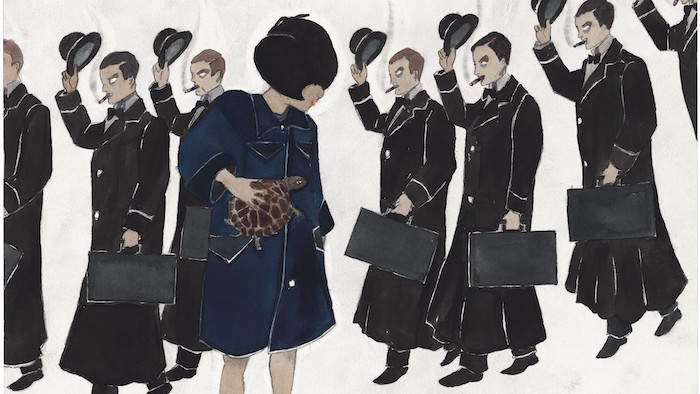
The novel isn’t shy about exposing readers to examples of a fast-paced society tempting its members with conveniences that ask for sacrifices. Such sacrifices involve downtime for recuperation and reflection getting in the way of “utilizing the present moment as a way to get something in the future” 6 and in a get-rich-quick fashion. Examples include the scene showing the breakneck pace of fast-food work and another depicting a Man in Gray’s attempt to persuade Momo into consumerism via a doll with limited dialog options and little room for Momo to use her imagination while playing.
But the book doesn’t give a face solely to materialistic vice — as if to show readers only what not to do. Ende also provides the likes of zen street-cleaner Beppo and the tortoise Cassiopeia to personify virtue. By virtue, Ende means temperance and the need to focus on the present rather than worrying about the future and therefore rushing to conclusions.
By doing so, Momo shows that one isn’t alone in the struggle against social woes. They can look to others for sussing out the best way to target the culprit behind said woes without losing their faith in the interpersonal.
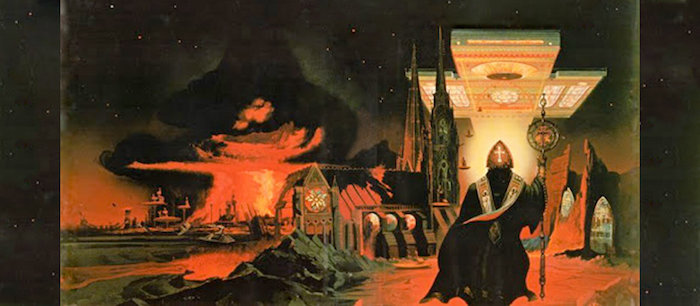
Crafting a tale that pits the individual and collective against one another is one thing. Presenting an outcome that shows how both sides are changed by their interactions and struggles is another. It compels the author to inject agency and consequentiality into both sides so as to creatively reflect the ways in which people shape — and are shaped by — their world.
This begets commentary that can turn the book’s series of events into a success story or a cautionary tale about human nature. Readers can thus take lessons from it regarding the need to change oneself and others for the better.
Other Examples:
- A Canticle for Leibowitz (1959) for highlighting the pressures of protecting potent knowledge from an ignorant world
- The Alchemist (1988) for portraying the hardships of seeking one’s personal legend in a world not made for self-actualization
- Adventures of Huckleberry Finn (1885) for underlining the struggle between innocent boyhood and rotten attitudes in 1840s America
- Oliver Twist (1838) for depicting the ways in which poverty can taint (young) folks’ character in desperate times
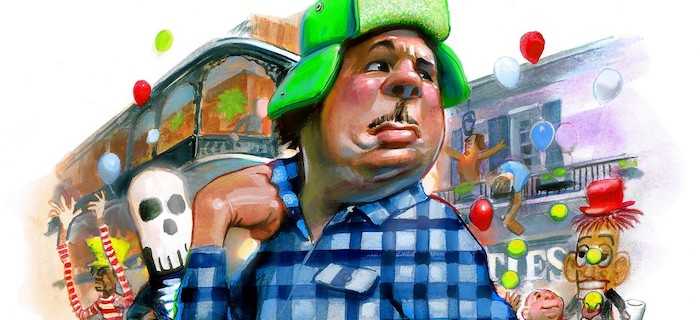
As George Orwell puts it in his essay Lear, Tolstoy and the Fool (1947), “There is no test of literary merit except survival.” And as generations pass, one can see which work of art stood the test of time. Such a work of art embodies qualities that not only shine on their own, but may also serve as the foundation for subsequent pieces of literature. It can have writers and readers alike look back to the past, and build upon the Parthenon of traits and ideas that looms over the literary landscape.
Literary merit thus showcases what current and future artists can live up to should they choose to have their work transcend their times. That work may have one “leave behind the problems of reality — but only to re-encounter those problems in transfigured form, in an unfamiliar guise, one that helps [one] understand them more completely, and feel them more deeply.” 7
Works Cited
- Duque, Carolina. “World of Literati: The Debate between Literary Fiction versus Genre Fiction Is Meaningless – The Daily Free Press.” The Daily Free Press, 7 Feb. 2019, dailyfreepress.com/2019/02/07/world-of-literati-the-debate-between-literary-fiction-versus-genre-fiction-is-meaningless. ↩
- McKenna, Juliet. “The Genre Debate: Science Fiction Travels Farther than Literary Fiction.” The Guardian, Guardian News & Media Limited, 21 Aug. 2019, www.theguardian.com/books/2014/apr/18/genre-debate-science-fiction-speculative-literary. ↩
- Keeley, Matthew. “A Walk Around Inland: Russell Hoban’s Riddley Walker.” Tor.Com, Macmillan, 23 May 2017, www.tor.com/2017/05/24/a-walk-around-inland-russell-hobans-riddley-walker. ↩
- Jordison, Sam. “Finding Your Way around Riddley Walker’s World.” The Guardian, Guardian News & Media Limited, 21 Aug. 2019, www.theguardian.com/books/booksblog/2017/nov/14/finding-your-way-around-riddley-walkers-world. ↩
- Gioia, Ted. “The City and the City by China Mieville.” Postmodern Mystery, 23 Aug. 2011, www.postmodernmystery.com/the_city_and_the_city.html. ↩
- Pines, Giulia. “Why a Classic German Children’s Tale Is Ripe for Revisiting.” The Atlantic, The Atlantic Monthly Group, 19 Mar. 2018, www.theatlantic.com/entertainment/archive/2018/03/momo-michael-ende-childrens-novel-wrinkle-in-time/555158. ↩
- Petite, Steven. “Literary Fiction vs. Genre Fiction.” HuffPost, BuzzFeed, Inc., 28 Apr. 2014, www.huffpost.com/entry/literary-fiction-vs-genre-fiction_b_4859609. ↩
What do you think? Leave a comment.











Great read. I sincerely believe that people can read books for any reason. Some people just want to have a nice enjoyment, reading a book to escape. I don’t think it’s wrong—in fact I think that sometimes people need that to destress themselves. It also happens to be more accessible, hence why it can sometimes have the best selling book label. That being said, I do think a book can be both having literary merit and being for enjoyment at the same time. It really comes down to you as a person, whether you can enjoy a book with literary merit. Plus a book that isn’t labeled to have literary merit can also sometimes be very enlightening about life and humanity as a whole. Just coz you don’t have the literary label doesn’t mean that you can’t change lives as well. That’s at least what i believe sincerely.
Thanks for the kind words. As I mentioned in my post, standards regarding what makes for entertaining and/or heady reads change over time, so books that initially didn’t wield literary merit in contemporary critics’ eyes may do so in retrospect. I suspect that as we as a species become more knowledgeable about our nature and condition, we’ll start picking up more artistically meritorious cues that may broaden the range of enlightening fiction.
How about literacy merit in commercial books? Or literacy vs commercial for that matter.
Literary genre (which can also include commercial) fiction can be a thing, so the literary and genre labels aren’t mutually exclusive. Re: Ray Bradbury and Ursula Le Guin.
I think the issue with commercial books comes with the way they are categorised as commercial in the first place. That word gives the impression that the book has not been written to become art, that it isn’t supposed to be a literary achievement. It gives the impression that the aim was just to write a book that sells, not produce something of quality. This I guess is shown when people say commercial books are ‘dumbed down’ or ‘simple’. There’s a feeling that the author doesn’t possess literary talent. It’s my opinion that if something can be done by anyone then it is not art. So the typical idea of a commercial book being simple and not requiring much writing talent makes it seem strange that they would win literary prizes. Prizes don’t exist to award books that are popular or books that appeal to loads of people or books that sell really well – they exist to recognise literary talent and creative achievements! The question that should be asked is: is this book really one of the best books of our generation?
That being said, I can’t stand the idea that just because a book is written in a literary style it should be viewed as better than a commercial book. I’ve read plenty of ‘literary’ writers who I just don’t think are talented writers or they really missed the mark with that particular book. A writing style or the categorisation of a book as literary does not mean that the end product is good. Books shouldn’t be judged by which style they take, whether that be a ‘commercial’ v literary style or whether they are simple or more complicated. That’s bonkers. A book should always be judged for prizes/acclaim based on the quality of the end product produced. Being popular/appealing to a mass audience/being a particular style etc etc are irrelevant factors to how good a book is talent-wise.
However I don’t think that the label ‘commercial’ is being used quite correctly. Pride and Prejudice is an extremely commercial book because it’s one of the most commercially viable books there are – many many many copies are sold every year. But being wildly popular doesn’t automatically make it a simple read or dumb etc obviously. It’s just considered a great book. Something that 50 shades is not considered even though they are both commercial. There shouldn’t be this negative attitude towards the term commercial imo – books are there to be sold and we all know number of copies sold does not dictate how good it is.
Super long comment but last point. I’m not a book snob – I don’t judge books by what labels they are given. I don’t care whether the language is simple or hard. At the end of the day books are to be enjoyed so there should be no snobbery over them. Ultimately though I do think that books should be awarded prizes based upon their quality. Forget whether it’s a commercial book or a literary book…is the book a literary achievement? Will this book be a true and well-loved classic in the future? Again…is this book really one of the best books this generation has produced?
As far as I’m concerned just because a book connects to a wide audience doesn’t mean it should be excluded from a prize or ‘book snobs’ should question it’s worth. What we like or don’t like is obviously a personal thing but what I dislike is when others try and tell you that something you like has no worth, just because it’s accesible to all sorts of people. I’ve read both literary and commercial fiction and enjoyed both and for me enjoyment/connection is the point of fiction.
Well said.
I feel like this whole gate-keeping thing of ‘literary’ vs. ‘commercial’ is preventing people from reading. It reminds me of how, when you’re a teenager (and particularly a teenaged girl) you’re not allowed to like anything. Everything you like, from music (say, boy bands) to books, to films are all completely shat on and so in order to survive it, some people end up making fun of what other people like in order to survive.
And years later, in hindsight, you realise that actually, all that animosity was for nothing, it went nowhere and it was so so so unhelpful. And actually, if you let go of that gate-keeping, you would’ve been so much less stressed and enjoyed life so much more.
Life’s indeed too grand to fence oneself in.
@abba I agree with the point you make here completely! The tastes of women, especially if they are young, are dismissed as inherently less valid. That is why the “not like other girls” mentality has become something so many girls try to adopt, because we have to in order to be taken seriously.
I mean, labelling literature targeted towards women as “chick-lit” is a pretty good example, the name in and of itself is dismissive.
Good observation, it is a topic that (clearly) gets me riled up.
@Michel Sabbagh, good writing as always.
I think all books have worth, whether they are literary or commercial fiction. Yes there are the life-changing books, but any book that you enjoy reading has worth just for the joy it brought you, and that it such a subjective thing anyway. A book that has a lot of worth to me might mean nothing to you, regardless of how ‘literary’ it is, and that’s ok.
I second that.
I find the whole elitist dichotomy of Literary and Commercial that seems to assume that is something is easy to read and/or popular it’s not as difficult to write or had less literary merit. It’s such a crazy notion.
Turning one’s subjectivity into objectivity can indeed restrict the conversation around art and specific artworks, preventing one from providing their unique take on the medium and its catalog of works.
If a book engages readers, if it creates emotions and makes you think – this is what makes a great book.
Literary merit thus takes on a personal meaning. The key is to not use that personal meaning as dogma for what constitutes sound literature, which can beget gatekeeping.
Good book is not always make you want to read more, but it bring a new idea, new perspective, new facts, or trigger something inside you.
I concur, save for the “not always make you want to read more” bit. A book with a resonant idea could have you re-read the prose just to reabsorb and better understand what moved you in the first place, thus refining your literary tastes and even influencing the kind of writing you do should you take a whack at storytelling.
I spend a lot of time wondering what commercial fiction novels will end up being held up there with the “great classics”.
Let’s wait and see. 🙂
Lord of the Rings for sure.
LOTR is already a classic. I’m thinking more modern, last twenty years or so.
Likely works with punchy themes relevant to our current and future iterations of society. Those tend to be the books that age gracefully and stick in folks’ minds for longer.
It’s a classic of genre fiction, but it’s definitely not a classic of literary fiction, which is what people mean when they talk about ‘classics’, books like Jane Eyre or Les Miserables or Ulysses. It’s still a very long way from being considered a classic in that sense. When LotR was published contemporary critics derided it as juvenile trash, and even today most of the literary establishment would only grudgingly consider it on a par with literary fiction.
FWIW, I recall Harold Bloom including Riddley Walker in his Western Canon endeavor, so the idea of SFF works standing shoulder-to-shoulder with literary fiction isn’t far-fetched. But I agree that all this depends a lot on how audiences view the work in question (i.e. as a piece of entertainment, of enlightenment, or both).
“The Hunger Games”, at least the first one. I can see it becoming this brilliant commentary on or obsession with media and glorifying violence and consumer privelage, etc. The POV and tense suddenly become this brilliant artistic device that “captures the soul” of the underprivileged, etc.
Hence why the Hunger Games inspired many other works with a similar premise. Re: Divergent and The Darkest Minds.
I can’t speak much about them as I haven’t read them, but some of Leigh Bardugo’s works seem like they’d be a candidate.
Harry Potter… Eventually.
Any book that has symbolism, messages or anything people might discuss for hours in relation to execution of the story and how we might learn from it’s example has literary merit.
I concur, and the more unique the author’s perspective is, the more artistically meritorious their work may become.
I think most books have literary merit but some have more than others. I also believe that it’s extremely subjective. Many books we consider classics now where criticised as having no literary merit when they came out, like the work of the bronte sisters.
Hence the benefits of retrospective analyses and multiple perspectives in the realm of literary criticism.
The thing that bugs me most is when literary fiction writers are called ‘serious,’ artists and their work ‘serious,’ literature, while fantasy and other genres aren’t even considered art, which is the types of books I write. Both Literary and Genre fiction is art and valuable. And all writers on both sides of the fence are serious authors.
Well said. One shouldn’t dismiss genre fiction just because it values plot, pacing, and action as much as—or more than—the emphasis on exploring the human condition. Different literary fields and authors have different approaches to storytelling that can yield literary merit.
My preferences tend to lie in themes and genre, rather than whether it’s literary. I want something relatively easy to read, something that grips me, and has some kickass characters who I can love/hate with such passion that I cannot stop thinking about said characters long after I’ve finished the book.
I second that. It’s interesting that you mention themes since that’s the trait I look for the most when I review books.
My boss wouldn’t read any fiction she would only read something if she would learn something. I said that is stupid and books are allowed to just be fun. It’s like TV you’re allowed to like and watch documentaries, soaps and gripping drama – all are valid for different reasons.
And the great thing about fun is that it and literary merit aren’t mutually exclusive. 🙂
I always thought literary was meant to be “a book with something to say and says it well” but I admit that I find a lot of literary is faffing on to sound verbose and therefore it’s beautiful- no it’s not beautiful get to the point.
I think merit can be found in any book, as long as the author includes it. I think we should be reading all sorts of books, as long as they provide us with something, ANYTHING, that contributes to our growth.
I concur. A well-read person benefits from being especially sensitive to throughlines both subtle and clear that make works of fiction artistically appealing.
I read to enjoy myself. I don’t care if it’s crap to anyone else or not. it’s about if I enjoy it. Reading is a pleasure not a requirement that has to be met by others in the book community. I feel lots of my books have literary merit, because I say so.
What a fascinating discussion article! I think that the dichotomy of literary fiction and none literary fiction isn’t as concrete as people make it out to be. There are so many books that straddle the line of readability and “literary merit,” and those are the types of books I tend to gravitate towards. The interesting thing is that this dichotomy isn’t new, and people’s perceptions of books can change over time.
I read a lot of Victorian fiction, and I find it fascinating how people currently consider Dickens highbrow and literary, whereas in his own time period he was read and adored by the masses. On the other hand George Eliot was considered highbrow in her time period, but now Dickens’ works are often lumped together with hers. I personally think both authors’ works have literary merit, but they are so different!
“I personally think both authors’ works have literary merit, but they are so different!”
Hence the other examples I offered. There’s no single right way to nail a storytelling quality conducive to literary merit. 😉
I completed a literature degree and read some absolutely fantastic books in those 3 years but the two books I remember both are at very different ends of the spectrum – Salman Rushdie’s Midnight Children which I suddenly had to read in a day because I got a second choice module, I hated it throughout that day and then fell in love with it when I studied it and The Divine Secrets of the YaYa Sisterhood which was a novel I read on the bus to uni which made me miss my bus stop and have to call for the bus driver to stop the bus whilst I had tears pouring down my face.
The great thing about literature and creative writing degrees is that they can compel one to pick up or further dedicate themselves to personal reading—which enables one to experiment with different genres and authors, discover their literary selves via their book picks.
I really feel our perceptions are currently in constant flux and we’re all waiting for new definitions to establish. We call Tolstoy or Steinbeck as having literary merit, but were they called as such when the first book was published? Unlikely. History takes time.
As art forms evolve, so do folks’ ideas of what represents the pinnacle of their medium. Melville and Fitzgerald—both of whom weren’t especially acclaimed in their lifetimes and/or deemed their lives a failure—spring to mind with regards to posthumous recognition.
As Michel said, very few people were fans of Steinbeck when he was writing. Most of his recognition came later.
And given that issues surrounding labor and class remain relevant to this day, that level of recognition will likely stay afloat in the future.
Glad to see this published! Thanks for letting me help with the revisions as well.
Thanks again for the feedback! 🙂
Generally, if I dont like the initial tone of a fiction novel, which I can feel in the first three sentences honestly, I cant bring myself to enjoy it. Pick up a JD Salinger book, you get his whole mood immediately, and its strong. Pick up Jack Kerouac, same thing. Pick up Kurt Vonnegut, same thing. Kafka, same thing. All of my favorite writers have convinced me to keep reading based on their first paragraph.
“All of my favorite writers have convinced me to keep reading based on their first paragraph.”
I’ve had that feeling with Tim Dorsey’s books.
Writing a book isn’t hard to do but writing something interesting is another story altogether.
This is why it’s important to make the distinction between plot (series of events) and story (the meaning/message behind said series of events). Writing something interesting can mean being mindful of pacing and character development, both of which provide a sense of journey that can entertain and educate.
So interesting that you published this, I was actually just thinking about writing a piece on literary fiction discussion (more angled towards what literary fiction even is, what qualifies as literary fiction, and whether we even need a category etc). But this was great, and definitely gave me more food for thought!
Thanks for the kind words. My take on the subject was a bit looser given that I also tackle genre fiction (which I think can make for as enlightening a read as literary fiction).
A few years ago I worried that all of the books I read had to be life-changing and teach me something. In Elizabeth Gilbert’s Big Magic she asks that people don’t write to teach their reader something but if the reader learns something along the way then that’s fine.
Nothing wrong with a book bearing important messages, more so when said messages are relayed via drama and conflict that keep readers engaged and entertained while still deriving life lessons along the way.
Whenever I see novels that have tried to do unusual things in the name of innovation/experimentation my first thought is Tristram Shandy and how Laurence Sterne was doing weird stuff c.300 years ago!
“It is better to fail in originality than to succeed in imitation.” – Herman Melville
A book, whether you chose to categorise it as literary or not, is as good as the experience that it gives to its reader.
This rings true given the medium’s subjective appeals, i.e. that it allows different readers to derive different meanings and values from the written word.
There is literary merit in any books that appeal to a large amount of people.
Any book, really. Mass appeal is optional, but having lots of admirers can help shore up the literary value of the work in question.
By shore up, I mean bring more attention to the qualities that lend literary merit to the work.
Thank you. You articulated many things I haven’t been able to express irl without going off on a rant.
No problem! 🙂
Literary merit is almost easier to define by its absence. I know when I have just read empty fluff–which I seldom do–and when any book, genre fiction or not–makes me think, feel and notice more deeply, as well as being written with skill and style.
And the more sensitive one is to literary merit(‘s absence), the more prudent they’ll be in their choosing which work they’ll read and let into their lives — for we are all defined by what we consume, literally and figuratively.
Almost all books have something to say about the human condition, they reveal things about the world we live in. Just because a book doesn’t have a meticulously planned out theme, doesn’t mean there isn’t one.
I agree. Plus, themes can be subtle, thus encouraging the reader to thoroughly engage with the text. 🙂
One thing worthy of discussion is how the broad sense of “literature” means anything written down and the more restrictive sense means of “being held to certain standards” changes greatly over time. I have to say, I love the Great Gatsby, one of my favourite books ever, but I highly doubt it would be accepted for publication today, or if it were, it would be heavily edited.
In my experience, something reveals itself as literature if one’s able to derive wisdom and/or life lessons from the written word — regardless of the rigid conventions in the literary realms. I reckon that’s why some works age better than others: They’re more thematically enlightening and reflective of our ever-evolving society.
I go through phases with classics. Sometimes, it’s all I want to read. Occasionally after I”ve read few classics in a row, I switch over to something more modern. It could be literary fiction , “book club fiction”, short stories, or the more specialized genres like magical realism or even some fantasy.
I find myself doing the same thing as well, i.e. reading a classic and more modern work back-to-back. Knowing one’s literary roots and understanding the conventions and trends of today are both invaluable for the conscious artist.
Maybe 100 years from now Harry Potter will be defined as having literary merit, long after the fanatism simmers down.
A lot of books are revolutionary in the perspectives that they offer, the voices they bring to light without falling under the “literary fiction” umbrella, but there are also books filed under “literary fiction” that are less about content and more about construction.
“A lot of books are revolutionary in the perspectives that they offer, the voices they bring to light without falling under the “literary fiction” umbrella.”
Fahrenheit 451 springs to mind. A sci-fi, dystopian tale with something hard-hitting and still relevant to say.
Thank you for introducing me to a couple of texts I was previously unfamiliar with. Michael Ende’s Momo, for example, sounds like quite an enticing read! And, as you suggest, what a relevant concept it still is.
Pleasure’s mutual! 🙂
This seems very intuitive and indeed there is an element of truth here, even (perhaps especially) among the classics. Good job!
Thank you!
For me, literacy merit is any book that makes me think, rather than just being entertaining.
And books that do both (i.e. entertainment and smarts) well can linger in the mind for quite a while. 🙂
Books studied in classrooms will usually be ones that show good examples of literary techniques.
The author of this article seems to be navigating a course between cynical theoretical criticisms, and the earlier canon-based standard. I agree you have to meet the theorists–if not head-on, then somewhere on their turf. There’s a bit of a gap, though, between declaring there is indeed such a thing as a quantifiable “literary merit” and then basing one’s approach in the “no authority, no standard” camp, which traditionalists decry as anti-literary. To re-claim the idea of literary quality on their grounds is notable, yet this seems to leave out certain “higher Lit” qualities such as pure (i.e., non-socio-political) style and delight of words, which plays into what I see as the materialist worldview of literary theorists and the resultant dreary political agendas of literature that adheres to that view.
I really enjoyed article.I appreciate the effort of author.
Thank you for the thoughtful exploration of the fascinating question on what is literary merit!
This article makes me think about what is constant and what is new when it comes to good literature. Somehow all great literature seems to work around a few perpetual, eternal themes of humanity – but I haven’t worked out what these themes are specifically. The magic of literature for both authors and readers is to experience these eternal themes anew, entering another person, another time, space and dimension, living other lives beyond the restrains of this life. But the fact that we can still relate to the characters from other worlds and dimensions indicates that the themes of great literature remain constant; they are eternal questions we ask and try to answer, again and again.